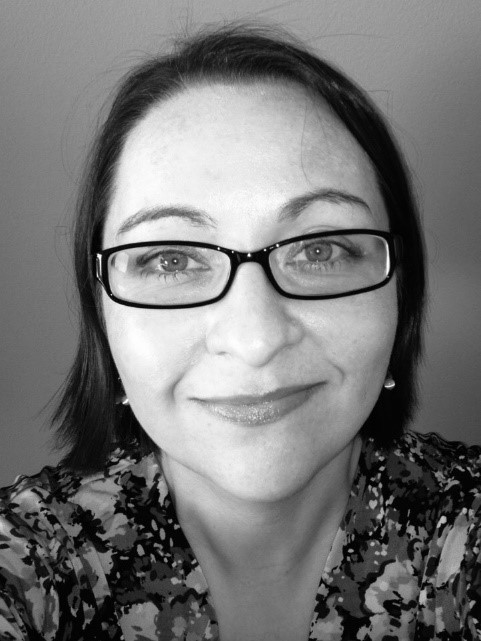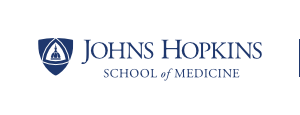JHSPH Alumni Profiles
Dr. Alisha Creel
 Dr. Alisha Creel graduated from The Bloomberg School of Public Health’s Department of Health, Behavior and Society in 2008. Her dissertation studied the effects of a radio program featuring men and women with HIV telling stories about their everyday lives on HIV-related stigma in Malawi. Before starting at JHU, Dr. Creel received a BA in Psychology from Harvard University. Since defending her thesis, Dr. Creel has served as an assistant professor in Social and Behavioral Sciences at the Uniformed Services University, a manager for ICF International in their Public Health and Survey Research Division, and as a Principal Associate at Abt Associates in the Data Science, Surveys, and Enabling Technology Division. Dr. Creel is currently an Associate Director in the Field Studies area at Westat, a consulting firm focused on improving outcomes in health, education, social policy, and transportation.
Dr. Alisha Creel graduated from The Bloomberg School of Public Health’s Department of Health, Behavior and Society in 2008. Her dissertation studied the effects of a radio program featuring men and women with HIV telling stories about their everyday lives on HIV-related stigma in Malawi. Before starting at JHU, Dr. Creel received a BA in Psychology from Harvard University. Since defending her thesis, Dr. Creel has served as an assistant professor in Social and Behavioral Sciences at the Uniformed Services University, a manager for ICF International in their Public Health and Survey Research Division, and as a Principal Associate at Abt Associates in the Data Science, Surveys, and Enabling Technology Division. Dr. Creel is currently an Associate Director in the Field Studies area at Westat, a consulting firm focused on improving outcomes in health, education, social policy, and transportation.
My group conducts large, in-person (household and school-based) surveys, many of which are longitudinal. I just started this new role in October 2018, and in-person surveys are new to me, so my main responsibility thus far has been to learn all I can about Westat’s very large and complex field studies. As I get more into my role, I will provide project management oversight and guidance related to budgets, schedules, and deliverables and conduct methodological research. I will also work on business development activities to include writing and pricing for proposals.
In my last year of grad school to make some extra cash, I worked for the Center for Injury Research and Policy cleaning and updating its database of contacts – alumni, collaborators, etc. – for its 20th anniversary. I came across an entry of Deborah Girasek at the Uniformed Services University, and I had never heard of it before – it is the military’s medical, public health, and health sciences graduate school. As I planned to finish my dissertation, I started my job search with academic jobs, as they have a longer lead time than non-academic jobs tend to. I searched APHA’s job board, publichealthjobs.org, and Emory’s Public Health Employment Connection; USUHS had posted the assistant professor position on the latter site. I interviewed with Deborah and several others and got an offer. The position was very attractive – the stability of a federal government position, only one course to teach, and the benefits (better salary and research funding) of working within a medical school.
I went into an academic job, and I felt very prepared to teach the overview course in social and behavioral sciences in public health and not that prepared to conduct research on my own in that setting. Academia didn’t agree with me in several ways: I need deadline pressure (5 years to tenure is too far away!), and I like to bounce around topic areas (academia rewards becoming an expert in something very specific). I also realized I needed more experience with the nuts and bolts of getting research done and I wasn’t in an environment with lots of collaborators handy.
My husband had reluctantly taken a job with Westat when the academic job market in sociology didn’t pan out for him. I began to see that doing contract research would fit my personality better. It is all deadline pressure, being able to do many different things is rewarded, and the research more often than not tends to have an impact on policy and programs. I also realized that I could get experience with a half a dozen projects within a year, whereas on my own I would be lucky to get one project off the ground. I started to look around and ICF called me back interested in my military health experience from my time at USUHS. They were conducting survey and evaluation research with the military, and it was all really interesting. The office was in Fairfax, VA, not a close commute to Rockville, MD, so I initially turned them down, but eventually we worked out a plan where I could telecommute a few days a week. It was a great decision, and I’ve gotten to work on so many interesting and impactful projects in the past 8 years.
JHSPH provided a solid foundation for all the stages of my career so far. My advisor wisely recommended that I take all the methods and stats courses I could, and even though I didn’t always feel like I knew what was going on in all of them, I came away with the ability to conceptually grasp a wide range of methodological and statistical concepts. I’ve been able to do both qualitative and quantitative research, surveys, and evaluation, thanks to my Hopkins training.
For my field, the most important thing is to learn new things quickly. Many companies in the public health research sector have summer internships, and it’s a great way to learn a lot about doing projects in a short time. For survey research specifically, the Joint Program in Survey Methodology has a lot of great courses (online and onsite at the University of Maryland) and short courses (usually 2 days) at the Bureau of Labor Statistics in DC. Going to conferences is worthwhile also, and many also have pre- or post-conference courses. There is also a ton of free stuff online now.
Academia: Ranges anywhere from 40k-75k for an assistant professor depending on the situation, location, exact job, etc. I was in a federal medical school, so I was closer to the upper end of the range.
Research industry: Entry level MPH is 50-70k depending on the level of prior work experience. Entry level PhD is more like 60-80k. The upper end of the salary range goes much higher than in academia or government.
Different companies structure salary vs. bonuses differently, putting more or less emphasis on the bonus portion. Westat and Abt were both employee-owned and had employee stock ownership plans (ESOPs). Everyone will have medical, dental and vision insurance, retirement plans, and probably life insurance, short and long term disability insurance, and other things available like critical illness or accident insurance. Less common are things like backup childcare and paid parental leave (beyond short term disability and accrued vacation and sick leave).
Do a summer internship! The ones I’ve seen are paid, and there are a lot in the DC area.
(I’m not sure Westat has any, but Abt has a good program: https://www.abtassociates.com/careers/summer-internship-program)
Take all the methods and stats courses you can, pass/fail or even just audit if you have to. Talk to people at a range of companies because all of them have a different culture and emphasis as far as what is valued in the work.
Thank you again to Dr. Alisha Creel for her time in conducting this informational interview.
This interview was conducted by Julie Nadel, PhD, in collaboration with the Professional Development and Careers Office at the Johns Hopkins School of Medicine.
Current students: if you are interested in connecting with Dr. Creel or other alumni for your own career exploration, please contact: phd_recruit@jhmi.edu.
Alumni: if you are willing to be contacted by a current student for an informational interview to have a profile made about your career path, please contact: phd_recruit@jhmi.edu.
